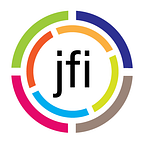Ya Lhmama | JFI Online Short: May 2024
The Jewish Film Institute is proud to present Ya Lhmama (Oh Dove) as our online short for the month of May 2024.
About the Film: This musical collage brings the poetry and songs of Moroccan Jewish artists and thinkers together in conversation with their Muslim counterparts, from Jerusalem and Netivot to the sea of Essaouira.
Watch the film and read an exclusive JFI interview with director Amit Hai Cohen to learn more about the project’s transnational collaborative vision.
Jewish Film Institue: How did you curate the featured Moroccan Jewish artists and thinkers to bring their voices together for this film?
Amit Hai Cohen: These are Jewish and Muslim artists and thinkers, most of whom I shared stages with through my work as a musician on the axis of Jerusalem and Morocco, such as singer Abir El Abed, Violinist Elad Levi, or the Palestinian singer Maher Diba. Some, like Reuven Abergel, founder of the Israeli Black Panther, are like family to me, inspiring many of my works. Another significant figure is Erez Biton, whose poem opens ‘Ya Lhmama.’ To me, he is the poet of our generation, chronicling the history of our grandmothers through his words.
My process is intuitive; I create on the fly. Most of the Moroccan scenes were captured in Essaouira. Upon arriving in Jerusalem, I seamlessly integrated footage with familiar artists. The poem by the poet Abd al-Rahman Al-Hamouli ‘Ya lhmama’, immediately reminded me of the poem “The Bird” by Erez Biton, prompting me to film Neta Elkayam reading it. The footage from the Jewish cemetery in Essaouira immediately connected me to the Muslim cemetery in Mamila, Jerusalem. Although in Essaouira, the graves are being maintained, in Jerusalem, you can find marble fragments. That’s how a character led me to another character, from one place to another.
JFI: Can you speak to the collage style approach and the editing process?
AHC: I often edit while filming, seamlessly blending the two processes as I typically shoot, edit, and mix by myself simultaneously. In this sense, I see myself more as a creator than a filmmaker. I push against bureaucracy, striving to keep the momentum in my passion alive. In ‘Ya Lhmama,’ as I poured everything onto the timeline, I began assembling elements that connected musically, visually, or thematically, while also capturing additional footage to fill any gaps or explore new ideas. During filming, I ensured that the footage had roughly the same bpm and sometimes a common tonality, allowing for easier mixing. However, I also allowed for plenty of manipulation in the studio to refine the final product.
While ‘Ya Lhmama’ may appear as a collage intended to blur distinctions of places and nationalities, for me, it has always been about one space, one wisdom. The initial spark that inspired ‘Ya Lhmama’, one of my earliest video works, paved the way for the creation of similar spaces, such as the Ziara exhibition I curated for the Jerusalem Biennale 2019, which brought international Moroccan artists together to share a common wisdom. Similarly, in the opera ‘Hilula’ (2022), where rabbis, dancers, drag shows, and ancient laments shared the same stage, I find great excitement in juxtaposing different elements, whether in harmony or conflict, to create a visual and musical world that makes sense to me. The collage style remains a consistent theme throughout my works.
JFI: Can you share with us how your family history and Moroccan roots influence your art?
AHC: My creativity, whether in visuals or music, is deeply rooted in my family’s North African history. However, I’m not driven by nostalgia; rather, I seek to construct a historical sequence rich in imagery and sounds, from which to grow and build new worlds. I resist solely clinging to the past; relevance is paramount, driving my interest in contemporary art. The Moroccan context lets me have Jewish experiences beyond the trauma of exile, putting myself within a broader context, without committing to a specific flag and nationality.
JFI: What do you hope people take away from watching your film in 2024?
AHC: Nowadays, when disasters are happening in front of our eyes and criminals taking over our lives, we must remember that the land is meant to be a shared space where everyone can live together equally.
About the Filmmaker: Amit Hai Cohen is a music producer, film maker, and Self-taught curator. Through his highly multidisciplinary creative process, Amit creates rich universes with mixed identities, languages, and aesthetics. He composes music for film and dance, including works like King David (2023) and Oil on Water, for which he co-wrote the script and he has created several films such as Stop the Evacuation and the musical To Box with God (2021), along with numerous video clips and other visual projects.
Amit has produced numerous international musical projects, including Abiadi and the electro-atlas show Arénas, collaborating with artists from the North African scene such as Moktar Gania and Kabareh Cheikhats. In 2019, he curated Ziara, the Jerusalem Biennale’s flagship exhibit featuring works by top contemporary Moroccan artists from around the world.
Amit, along with his life and stage partner Neta Elkayam, starred in director Kamal Hachkar’s documentary film In Your Eyes I See my Country (2019), which explores their early careers. In 2019, they were awarded the Erez Biton Prize for ‘Originality, Courage, and Breakthrough’. In 2022, Amit and Neta collaborated to create ‘Hilula,’ a multidisciplinary opera.
About JFI Online Shorts: JFI Online Shorts features one new short film each month from emerging and established filmmakers. Since 2009, JFI has showcased over 100 online shorts and garnered worldwide views over 2 million on the JFI Youtube channel. Learn more at www.jfi.org.
